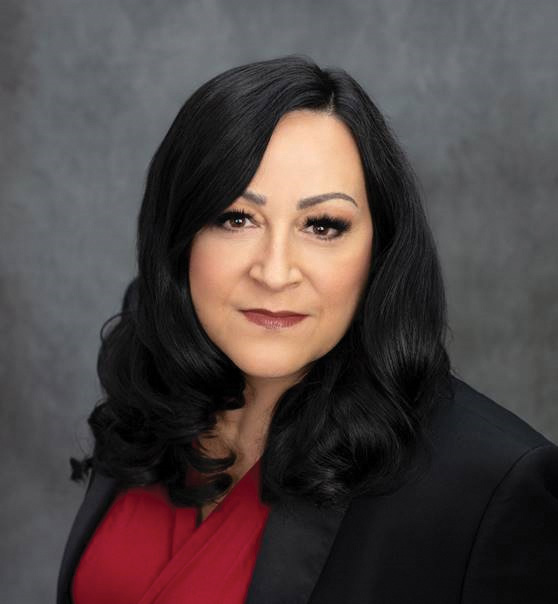Tribal Government & News
General Council briefed on Human Resources, TERO programs

By Danielle Harrison
Smoke Signals staff writer
Human Resources Director Camille Mercier briefed Tribal members on the department during a Sunday, May 2, General Council meeting held via the Zoom video conferencing application.
Following Mercier’s presentation was one from Tribal Employment Rights Office Director Harris Reibach.
“The challenges we face are COVID, recruitment and employment numbers, and challenges surrounding those things,” Mercier said. “Our mission statement is to recruit, retain and develop employees by providing support, tools and training to our workforce. Together, we strengthen our community, families and employees.”
Mercier briefly outlined the challenges the global pandemic has presented with employee recruitment and retention.
“As we all know, it has created a lot of challenges for Human Resources and affected the labor market,” she said. “In March 2020, the casino was closed from March 18 to June 1, and the Tribal offices were closed from March 13 to May 18. From March 2020 to current, we have had 494 cases, of employees on the casino and government side, who were exposed to COVID and tested positive or negative.”
In 2021, there have been 329 employment openings at Spirit Mountain Casino and 83 people hired, of which 17 are Tribal members. On the governance side, there were 167 job openings with 38 people hired, of which 14 are Tribal members.
Total employment numbers are 907 at the casino, with 84 Tribal members, and 527 for the Tribal government, with 270 Tribal members.
“We are short staffed,” Mercier said. “Everybody needs employees working, but nobody wants to work and I’ll talk more about why. We’re having a very challenging time getting employees hired. What we’re finding, and this isn’t unique to us, we hear is that there’s a fear of COVID-19, a lot of child care facilities closed down and schools closed down. If you were a parent with no child care and no schools to send your child to, you were likely not going to attempt to work and had to stay home to take care of your children.”
Mercier also noted that added unemployment incentives and stimulus checks play a role.
“The good news is a lot of that is changing and we are very hopeful for the fall. All indications are pointing to having an open labor market and having more applicants come September and October. We’re hoping to be fully staffed by this fall.”
Afterward, Mercier fielded three questions from the online audience.
Reibach opened his presentation by explaining what TERO is and how it was formed.
“Tribal sovereignty is what allows us to operate TERO and give our membership benefits,” he said. “TERO was the outcome of the Council for Tribal Employment Rights efforts to acknowledge the drastic unemployment rates on Indian Reservations throughout the United States. Now, there are over 300 TEROs in the United States, each operating with the same goal in different climates.”
Grand Ronde TERO was established by Tribal ordinance in 2013 to promote the interests of self-government and to ensure that Tribal members, as well as those from other federally recognized Tribes, can participate in economic opportunities on and near the Grand Ronde Reservation. The goals of TERO are to increase jobs, provide training, certification and apprenticeship opportunities, ensure Indian preference in promotions, contracting and subcontracting, and assist with career advancement opportunities for Tribal members.
The ordinance requires all employers, including Tribal government, Tribal businesses and contractors who perform work on the Reservation, to provide Grand Ronde Tribal and Indian preference in employment, and Indian preference in contracting and subcontracting.
The TERO Skills Bank includes 346 Native Americans, of which 156 are Grand Ronde Tribal members. The Indian-owned Business program is continuing to grow and provides registered businesses counseling and contracting opportunities on and off the Reservation. There are 37 registered and 18 are owned by Tribal members.
Reibach said that Grand Ronde is one of three TEROs in the United States with Department of Transportation contracts. The contract was established in 2014 and is renegotiated every five years. It established guidelines to apply TERO provisions to ODOT contracts, allowing eligible workers to be employed on state transportation projects, particularly those near Tribal lands.
In 2019, 60 workers were dispatched to ODOT projects, with 47 in 2020. Reibach said that more than $1.3 million in wages were paid to those employees in 2019 and 2020.
Overall, TERO trained 75 clients in 2019 in flagging, Microsoft Word and Excel, barista training, commercial driver’s license, CPR, nursing assistants, internship opportunities and American Association for State and Local History museum certification.
In 2020, things looked different due to the pandemic, but trainings were still done for 75 clients in various fields, mostly construction industry related.
Afterward, Reibach answered six audience questions. Tribal Council Chairwoman Cheryle A. Kennedy thanked him and Mercier for the updates.
“Harris, I appreciate your presentation, it was very thorough,” she said. “Especially to see Tribal members getting trained and gaining employment and skills. What a wonderful opportunity. Thanks to you and the staff, thank you all. And again, thank you to Camille. We appreciate all the employment here for our members. That was a vision of our leaders who spearheaded Restoration efforts. Self-sufficiency was one of the ingredients of our Restoration bill and we see it here.”
In other action, it was announced that a special General Council meeting will be held at 11 a.m. Sunday, June 27, for Tribal Council nominations. There is the possibility that the meeting will include limited in-person attendance. The location has not been determined yet.
Door prize winners were Simone Auger, Vincent Chargualaf, Jacqueline Wilmot, Leah Villa and Adam Langley, $50 each; and
Leroy Good, Herbert Stephens and Mike Portwood, $100 each.
The meeting can be viewed by visiting the Tribal government’s website at www.grandronde.org and clicking on the Government tab and then Videos.
